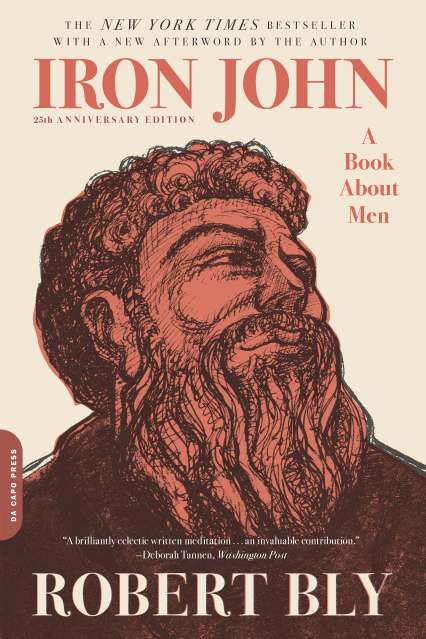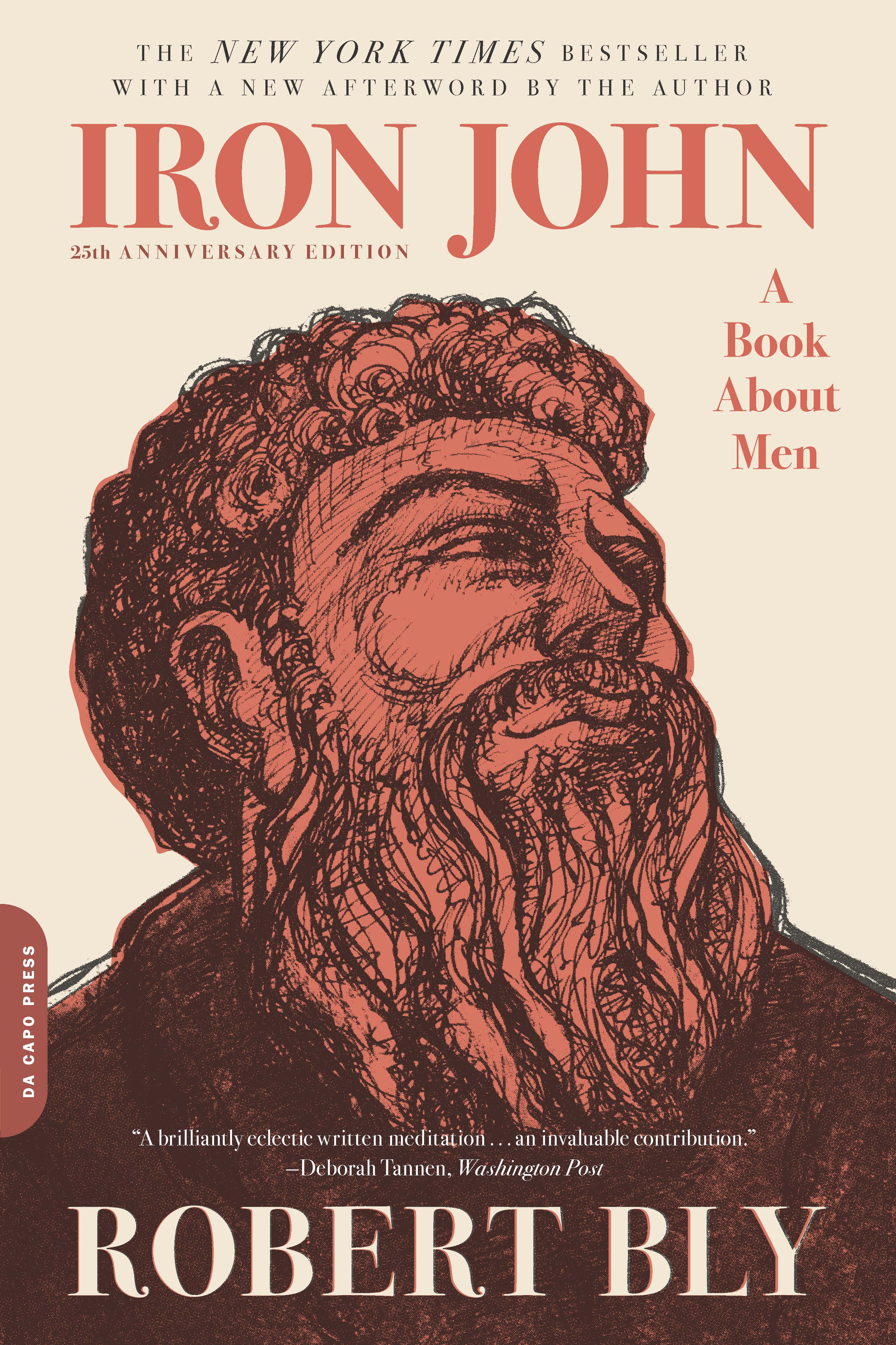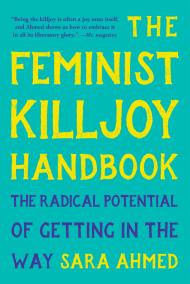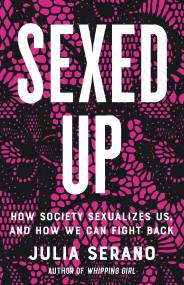By clicking “Accept,” you agree to the use of cookies and similar technologies on your device as set forth in our Cookie Policy and our Privacy Policy. Please note that certain cookies are essential for this website to function properly and do not require user consent to be deployed.
Iron John
A Book about Men
Contributors
By Robert Bly
Formats and Prices
- On Sale
- Nov 10, 2015
- Page Count
- 288 pages
- Publisher
- Grand Central Publishing
- ISBN-13
- 9780306824272
Prices
- Sale Price $2.99
- Regular Price $12.99
- Discount (77% off)
Prices
- Sale Price $2.99 CAD
- Regular Price $16.99 CAD
- Discount (82% off)
Format
Format:
- ebook $2.99 $2.99 CAD
- Trade Paperback $19.99 $25.99 CAD
This item is a preorder. Your payment method will be charged immediately, and the product is expected to ship on or around November 10, 2015. This date is subject to change due to shipping delays beyond our control.
Buy from Other Retailers:
The 25th anniversary edition of the groundbreaking New York Times bestseller, with a new afterword by the author–which offers a new vision of what it is to be a man
In this timeless and deeply learned classic, poet and translator Robert Bly offers nothing less than a new vision of what it means to be a man.
Bly’s vision is based on his ongoing work with men, as well as on reflections on his own life. He addresses the devastating effects of remote fathers and mourns the disappearance of male initiation rites in our culture. Finding rich meaning in ancient stories and legends, Bly uses the Grimm fairy tale “Iron John”-in which a mentor or “Wild Man” guides a young man through eight stages of male growth-to remind us of ways of knowing long forgotten, images of deep and vigorous masculinity centered in feeling and protective of the young.
At once down-to-earth and elevated, combining the grandeur of myth with the practical and often painful lessons of our own histories, Iron John is an astonishing work that will continue to guide and inspire men-and women-for years to come.
Bly’s vision is based on his ongoing work with men, as well as on reflections on his own life. He addresses the devastating effects of remote fathers and mourns the disappearance of male initiation rites in our culture. Finding rich meaning in ancient stories and legends, Bly uses the Grimm fairy tale “Iron John”-in which a mentor or “Wild Man” guides a young man through eight stages of male growth-to remind us of ways of knowing long forgotten, images of deep and vigorous masculinity centered in feeling and protective of the young.
At once down-to-earth and elevated, combining the grandeur of myth with the practical and often painful lessons of our own histories, Iron John is an astonishing work that will continue to guide and inspire men-and women-for years to come.
Newsletter Signup
By clicking ‘Sign Up,’ I acknowledge that I have read and agree to Hachette Book Group’s Privacy Policy and Terms of Use






